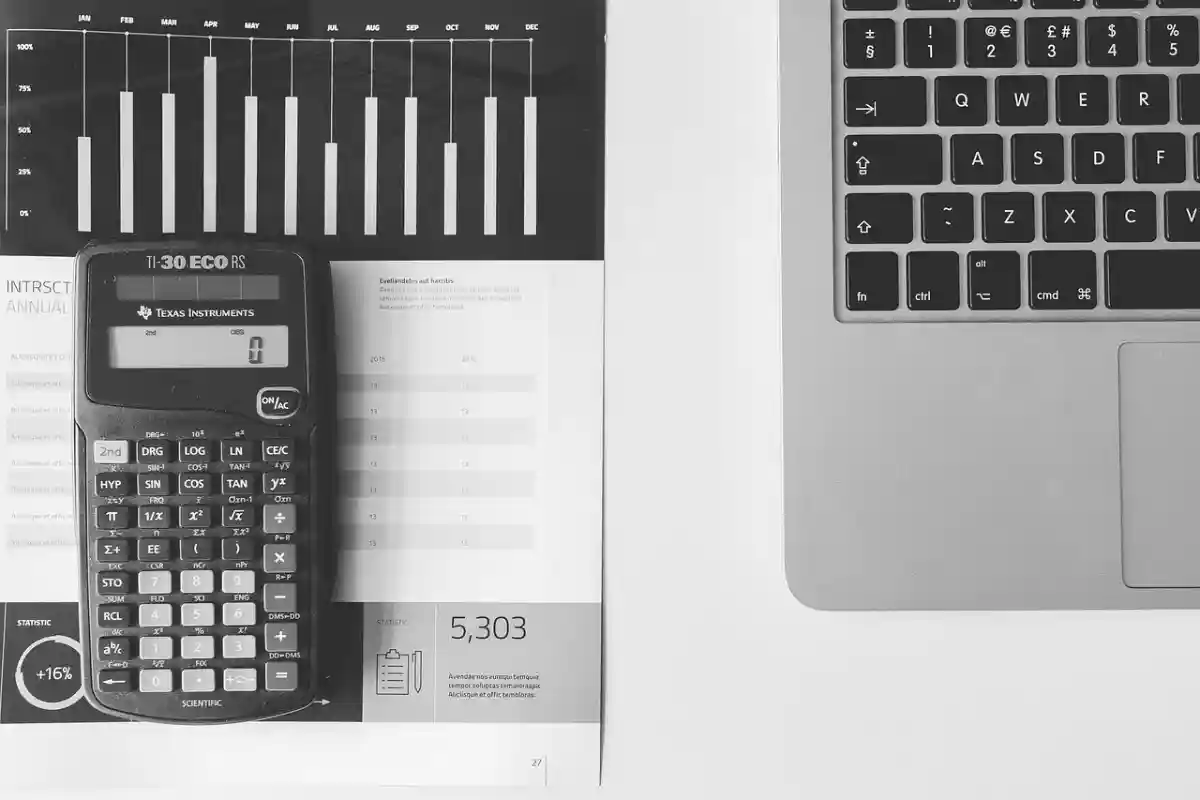
Introduction to Managerial Accounting: A Comprehensive Guide
Welcome to the world of Managerial Accounting, where the journey of business success is effectively built into the language of numbers! Managerial accounting helps entrepreneurs. Entrepreneurship is a lengthy and thrilling process. However, making the proper judgments for your organization consistently can be difficult. Making well-informed judgments is critical to the long-term success of your organization. This requires not just trusting your gut, but also recognizing all of the factors that influence your outcomes. One of the most effective approaches is to use managerial accounting.
In this article, you will explore the key principles that promote managing accounting to the position of a decision-making powerhouse. Ready to learn the secrets behind statistics and see how they serve as a guiding light for strategic decisions in today’s changing business world?

Managerial Accounting
Managerial accounting is a branch of accounting that focuses on delivering financial information and analysis to executives within an organization. It includes gathering, analyzing, interpreting, and presenting financial data to help in decision-making. Managerial accounting enhances a company’s overall performance.
Recognizing the distinction between management and financial accounting is critical to knowing it. While financial accounting primarily provides information to external stakeholders such as investors and regulators, management accounting is designed to provide information to internal stakeholders for decision-making reasons. Understanding management accounting is critical for managers. Because it allows them to make educated choices, efficiently allocate resources, and assess the financial success of their departments or projects.
Importance of Managerial Accounting in Finance
Managerial accounting is critical for the financial management of an organization. It provides managers with critical financial data for planning, monitoring, and analyzing departmental or project performance.
- Use of Managerial Accounting Techniques:
Managers use a variety of management accounting approaches, including cost analysis, budgeting, and variation analysis. These strategies allow managers to examine the financial effect of their choices and identify possible cost reductions.
- Monitoring and Controlling Expenses:
Managerial accounting is critical for monitoring and controlling an organization’s spending. It aids in the identification of trends and patterns in financial data, helping to a proactive cost-management strategy.
- Facilitating Effective Decision Making:
Managing accounting helps to make better decisions by giving information on profitability, efficiency, and flexibility. Managers can make educated decisions to improve financial performance using information gained from management accounting.
- Insights on Organizational Performance:
Managing accounting gives useful information about an organization’s overall performance. It provides a complete perspective of profitability, efficiency, and liquidity measurements, assisting managers in determining the health of the organization.
- Optimal Financial Performance:
Managers may make educated decisions to improve the financial performance of their departments or projects by using management accounting data. It enables people to strategically match their actions with organizational goals, resulting in long-term success.
Key Concepts and Strategies in Managerial Accounting
Managerial accounting is a critical field that covers several concepts and strategies required for efficient financial management.

- Cost Analysis:
Cost analysis involves calculating the cost of producing products or services. It helps managers comprehend the cost structure of products or services. Pricing selections are guided by a detailed cost evaluation.
- Budgeting:
Budgeting is an important strategy for creating financial objectives. Make a clear strategy to reach your goals. Managers may use it as a road plan, making it easier to allocate resources and track performance against goals.
- Variance Analysis:
Variance Analysis is a technique that compares actual performance to budgeted performance. Variance analysis identifies any deviations from the plan. It helps management identify the causes behind variances. And enables the deployment of remedial steps to enhance future performance.
- Activity-Based Costing:
Activity-based costing (ABC) assigns expenses to individual activities instead of departments. It provides a more accurate reflection of the expenses associated with certain procedures.
- Relevant Costing:
Relevant costing evaluates expenses related to a given choice. It also allows for more informed decision-making by taking into account relevant costs.
- Performance Measurement:
Performance measurement assesses an organization’s ability to achieve its objectives. It utilizes a variety of measures to assess performance across several domains.
- Strategic Cost Management:
Strategic cost management aims to link cost management techniques with overall company objectives. And it aims to improve long-term competitiveness through smart cost management.
Understanding these principles and strategies enables managers to make educated decisions, optimize resource allocation, and effectively negotiate the intricacies of financial management in changing company situations.
Managerial Accounting and Decision Making
Managerial accounting helps organizations make decisions at all levels strategic decisions, and operational decisions, and helps in the alignment of organizational goals.
- Strategic Decision Making:
It helps to assess investment prospects. Managing accounting is critical in determining the potential of investment options and giving information about the financial rewards and risks connected with each alternative. It methodically evaluates the costs and advantages of various alternatives, allowing businesses to make strategic decisions that maximize their financial resources. Evaluates the financial feasibility of various projects or initiatives. Managing accounting assists in determining if proposed projects or initiatives match the organization’s financial goals and are long-term viable.
- Operational Decision Making:
Product pricing is determined by managing accounting, which takes into consideration production costs, market demand, and competitive variables to ensure the most profitable pricing methods. It gives information on the performance of various product lines, allowing firms to focus resources on the most profitable areas. Managerial accounting helps in resource allocation decisions by analyzing costs and benefits, ensuring that resources are allocated towards activities that are most important to the organization’s performance.
- Critical Role in Decision Making:
Managerial accounting is essential for cost control, assisting organizations in making cost-effective decisions without sacrificing quality. It is essential to the budgeting process because it directs the distribution of financial resources to various departments and projects based on strategic goals. It contributes to performance evaluation: By analyzing financial performance measurements, management accounting reveals how effectively departments or projects are accomplishing their objectives, allowing for ongoing development. It assists in risk management managerial accounting and adds to successful risk management techniques by identifying and analyzing financial risks, ensuring the organization is prepared for unexpected events.
- Timely and accurate information:
Managing accounting provides fast and reliable financial data, allowing decision-makers to respond promptly and make well-informed decisions.
- Alignment With Organizational Goals:
Informed decisions are consistent with the general goals and objectives of the organizations. Managerial accounting ensures that actions are consistent with the organization’s overall goals and objectives by delivering accurate and relevant financial information, fostering strategic alignment and long-term success.

Future Trends in Managerial Accounting
As technology advances, the field of managerial accounting will continue to grow significantly. Expect significant changes in management accounting practices as technology advances.
- Data Analytics and AI:
A significant growing trend is the rising use of data analytics and artificial intelligence in management accounting. These tools enable managers to analyze massive volumes of data, detect trends, and derive actionable insights for better decision-making.
- Integration of sustainability:
Future managerial accounting trends include incorporating sustainability and environmental accounting methods. Organizations understand the necessity of incorporating environmental aspects into decision-making, which aligns with global concerns about climate change.
- Decentralized Decision Making:
Another predicted trend in management accounting is a move towards more decentralized and collaborative decision-making. This includes empowering employees at all levels to participate in decision-making by harnessing their skills and ideas.
- Embracing technological advancements:
Overall, the future of managerial accounting is focused on adopting technology improvements. This involves using data analytics, artificial intelligence, and other advances to improve decision-making.
- Promoting Collaboration and Innovation:
Cultivating a culture of cooperation and creativity is critical to the advancement of management accounting. The future requires a collaborative approach, enabling employees to actively participate in decision-making processes and cultivating a culture of continuous improvement.
Conclusion
Managerial accounting is like having a superpower for your business. It helps in strategic decision-making and continuous improvement. Consider it your guide on the path to becoming a financial expert. Analyze the entire picture, from strategic planning to continuous improvement. This is how you may create an ideal future for your firm. Managerial accounting gives you the confidence to make sound judgments. It’s more than simply statistics; it’s about having control. So, when you finish this guide, realize that you’re not simply learning about managerial accounting. But also, you’re getting access to financial expertise. Now, confidently lead your business into a successful future!












Add comment